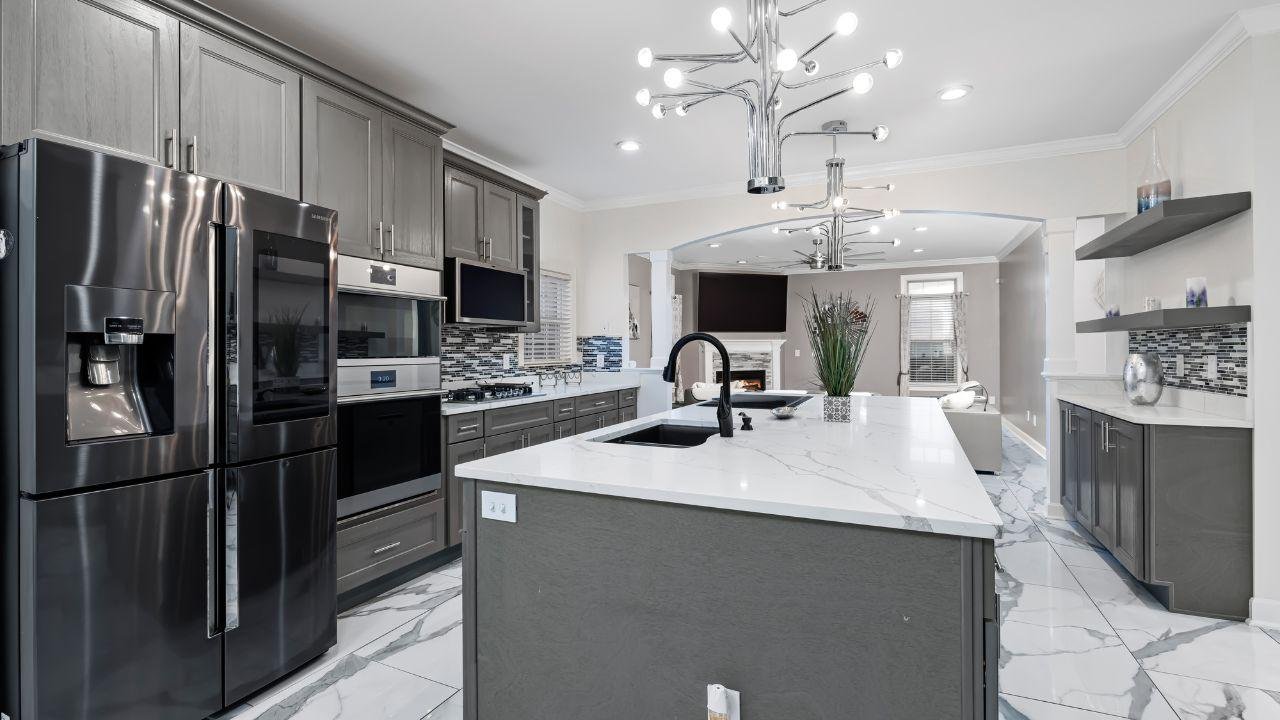The South Korea smart furniture market share is expected to grow at a CAGR of 9.10% between 2025 and 2034. Due to rising disposable income, consumers' lifestyles are altering substantially in South Korea. People are increasingly relying on technologically connected products, which make their lives easier at home and workplace. In the upcoming years, this will help propel the smart furniture market in South Korea.
In recent years, South Korea has witnessed a dramatic transformation in its living and working spaces. The surge in demand for smart homes and intelligent office solutions is driving innovation across various sectors, and the furniture industry is no exception. With a strong inclination toward integrating technology into daily life, South Korean consumers are reshaping the way furniture is perceived—not just as a utility, but as a dynamic, tech-enabled experience.
What is Smart Furniture?
Smart furniture refers to furniture equipped with advanced technologies such as IoT (Internet of Things), AI (Artificial Intelligence), wireless charging capabilities, voice control, sensor-based automation, and smart lighting. These innovations are designed to improve convenience, functionality, and user interaction.
From height-adjustable work desks with memory presets to beds that monitor sleep patterns or coffee tables that double as charging stations, smart furniture caters to a modern lifestyle that values comfort, efficiency, and connectivity.
Key Drivers of Growth in South Korea
1. Technological Affinity and Innovation Culture
South Korea is one of the most technologically advanced countries in the world. Its strong infrastructure in telecommunications, electronics, and robotics creates an ideal ecosystem for smart furniture adoption. Consumers are already familiar with smart devices like home assistants, smart TVs, and connected appliances, making the transition to smart furniture seamless.
2. Urbanization and Compact Living
The rise of urban living and smaller apartments in cities like Seoul and Busan demands multifunctional and space-saving furniture solutions. Smart furniture, often designed with compactness and flexibility in mind, addresses this need effectively. Foldable beds with inbuilt storage and desks that transform into entertainment units are becoming increasingly popular.
3. Evolving Work Culture and Remote Work Trends
The pandemic-induced shift toward remote and hybrid working models has led to higher investments in home office setups. Height-adjustable smart desks, ergonomic chairs with posture correction sensors, and AI-powered lighting systems are gaining momentum among the working population. As employers encourage productivity from home, individuals are willing to invest more in smart office furniture.
4. Rising Disposable Income and Lifestyle Changes
With growing affluence, South Korean consumers are seeking products that enhance comfort and elevate their lifestyle. Smart furniture is viewed as a luxury-meets-necessity product—offering functionality, aesthetic appeal, and high-tech integration. Millennials and Gen Z are particularly drawn to innovative home solutions that align with their digital-first mindset.
Segment Analysis of the South Korea Smart Furniture Market
Residential Segment
The residential segment holds a substantial share of the smart furniture market. Consumers are upgrading their homes with AI-powered beds, recliners with massage features, and smart mirrors integrated with personal assistants. Energy-efficient and customizable furniture is particularly appealing in eco-conscious households.
Commercial Segment
Offices, co-working spaces, and hospitality venues are also embracing smart furniture. Meeting tables with built-in connectivity options, interactive kiosks in hotel lobbies, and sensor-enabled seating arrangements in lounges are revolutionizing customer and employee experiences. As businesses strive for more efficient and engaging environments, smart furniture becomes a crucial asset.
Emerging Trends in the South Korean Market
1. Sustainable Smart Furniture
Environmentally conscious consumers are demanding sustainable materials and energy-efficient smart components. Furniture brands are responding with products made from recycled wood, bamboo, or biodegradable plastics, paired with low-energy IoT systems.
2. AI and Voice-Control Integration
Furniture that responds to voice commands via AI assistants like Samsung's Bixby or Google Home is gaining popularity. Consumers can control lighting, adjust furniture settings, or initiate entertainment systems with simple voice instructions.
3. Health Monitoring Features
Wellness-focused innovations are on the rise. Chairs that track posture and offer alerts, beds that analyze sleep patterns and offer feedback, or smart sofas with integrated heart rate and temperature sensors are transforming health management at home.
4. Augmented Reality (AR) in Furniture Shopping
Retailers are incorporating AR technologies that allow users to visualize how a smart piece of furniture would look and function in their home. This interactive experience is improving customer confidence and satisfaction, driving sales.
Challenges to Market Expansion
Despite the optimistic outlook, the smart furniture market in South Korea faces a few challenges:
-
High Cost of Smart Furniture: Advanced features and materials often come with a premium price, limiting accessibility for lower-income groups.
-
Consumer Awareness and Adoption Lag: While urban consumers are open to technology, older generations or rural populations may be hesitant to embrace smart furniture due to unfamiliarity or concerns about complexity.
-
Cybersecurity and Privacy Concerns: As smart furniture connects to networks and collects user data, ensuring data privacy and protection from cyber threats remains critical.
Key Players and Competitive Landscape
Several domestic and international brands are competing in South Korea's smart furniture market. Leading tech companies like LG and Samsung are collaborating with furniture manufacturers to integrate smart features. Additionally, brands such as Hyundai Livart, Fursys, and global players like IKEA are investing heavily in product innovation and design.
Startups are also entering the space, offering modular and customizable smart furniture solutions for niche segments like gaming, student accommodation, and elderly care.
The Role of Procurement Resource
Procurement Resource plays a vital role in offering detailed market insights, competitive analysis, and historical pricing data to businesses looking to enter or expand in the smart furniture segment. With reliable forecasts and customized research, companies can make informed procurement decisions and stay ahead of trends in South Korea’s evolving furniture market.




